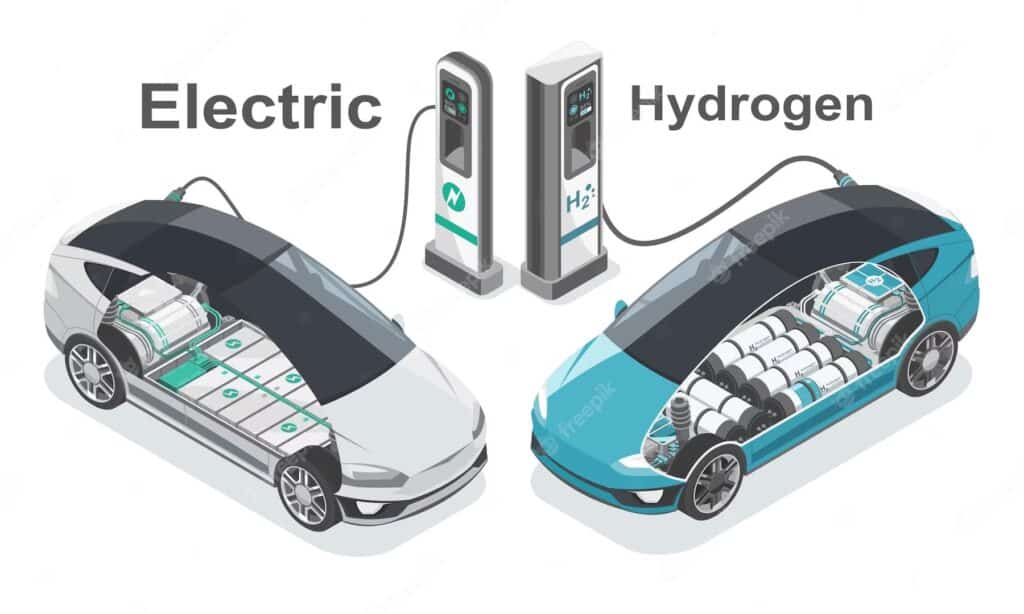The Electric Revolution A Comprehensive Look at Electric Vehicles

Electric vehicles (EVs) are rapidly transforming the automotive landscape, offering a sustainable and efficient alternative to traditional gasoline-powered cars. As technology advances and consumer awareness grows, EVs are poised to revolutionize the way we commute and travel.
The Environmental Impact of EV
One of the most compelling reasons for the increasing popularity of electric vehicles (EVs) is their significant environmental benefits. Unlike gasoline-powered cars, EVs produce zero tailpipe emissions, contributing to cleaner air and reduced greenhouse gas emissions. This reduction in pollution not only benefits local air quality but also helps mitigate climate change.
Furthermore, EVs can be powered by renewable energy sources such as solar and wind power, further reducing their carbon footprint. As renewable energy technologies continue to develop, EVs can become even more sustainable and eco-friendly.
The Economic Benefits of Electric Vehicles
Beyond their environmental advantages, electric vehicles (EVs) also offer economic benefits. EVs typically have lower operating costs compared to gasoline-powered cars. Electricity is generally cheaper than gasoline, and EVs require less maintenance as they have fewer moving parts.
Additionally, government incentives and subsidies for EV purchases can further reduce the overall cost of ownership. These incentives encourage consumers to adopt EVs, stimulating the EV market and driving technological advancements.
Technological Advancements in EV
The rapid advancement of battery technology is a key driver of the EV revolution. Modern batteries offer higher energy density, longer range, and faster charging times. As battery technology continues to improve, EVs will become even more practical and convenient for daily use.
Moreover, advancements in charging infrastructure are making it easier to own and operate an EV. A growing network of public charging stations and home charging solutions provide convenient and accessible charging options.
The Social Impact of Electric Vehicles
Electric vehicles (EVs) are not only transforming the automotive industry but also having a significant social impact. The adoption of EVs can contribute to reduced traffic congestion, improved air quality, and a more sustainable urban environment.
As more people switch to EVs, the demand for fossil fuels will decrease, reducing our reliance on foreign oil and improving energy security. Additionally, the development of the EV industry can create new jobs and stimulate economic growth.
Challenges and Opportunities in the EV Market
While the future of electric vehicles (EVs) looks promising, there are still challenges to overcome. One major challenge is the limited range of many EV models, which can deter potential buyers. However, advancements in battery technology are rapidly increasing the range of EVs, addressing this concern.
Another challenge is the limited availability of charging infrastructure, particularly in rural areas. Expanding the charging network is crucial to encourage EV adoption. Governments and private companies are actively working to address this issue by investing in charging infrastructure development.
Despite these challenges, the EV market presents significant opportunities for innovation and growth. The development of new battery technologies, charging solutions, and vehicle designs can drive the adoption of EVs and shape the future of transportation.
The Role of Government Policy in Promoting EV Adoption
Government policies play a crucial role in promoting the adoption of electric vehicles (EVs). Incentives such as tax credits, subsidies, and preferential parking can make EVs more affordable and attractive to consumers.
Additionally, governments can invest in research and development to accelerate technological advancements in the EV sector. By creating a supportive policy environment, governments can encourage the growth of the EV market and contribute to a more sustainable future.
The Impact of Electric Vehicles on the Energy Grid
The increasing adoption of electric vehicles (EVs) can have a significant impact on the energy grid. As more EVs are plugged in to charge, the demand for electricity will increase, especially during peak hours.
To accommodate this increased demand, utilities may need to upgrade their infrastructure and implement smart charging technologies. Smart charging can optimize the timing of charging to avoid overloading the grid and minimize the impact on energy costs.
The Global Perspective on Electric Vehicles
The electric vehicle revolution is not confined to a single country or region. Many countries around the world are embracing EVs and investing in their development and deployment. China, in particular, has emerged as a global leader in the EV market, with strong government support and a thriving domestic industry.
Other countries, such as Norway, the Netherlands, and Germany, have also made significant progress in EV adoption. These countries have implemented supportive policies, invested in charging infrastructure, and offered incentives to encourage consumers to switch to EVs.
The Future of Electric Vehicles
The future of electric vehicles (EVs) appears bright, with continued advancements in technology and increasing consumer awareness. As battery technology improves, EVs will offer longer ranges, faster charging times, and lower costs, making them more appealing to a wider range of consumers.
Moreover, the growing focus on sustainability and the increasing availability of renewable energy sources are further driving the adoption of EVs. As more people embrace electric mobility, we can expect to see a significant reduction in greenhouse gas emissions and a cleaner, healthier planet.
By embracing electric vehicles, we can reduce our reliance on fossil fuels, improve air quality, and contribute to a more sustainable future. As the electric revolution continues to unfold, EVs are poised to become the norm, shaping the future of transportation.





![Unlocking Real Estate Success [Company Name] Unlocking Real Estate Success [Company Name]](https://images.unsplash.com/photo-1583142499515-db3e66a57bdc?fm=jpg&q=60&w=3000&ixlib=rb-4.1.0&ixid=M3wxMjA3fDB8MHxzZWFyY2h8N3x8cmVhbCUyMGVzdGF0ZSUyMGludmVzdG1lbnQlMjBjb21wYW55fGVufDB8MHwwfHx8Mg%3D%3D)


